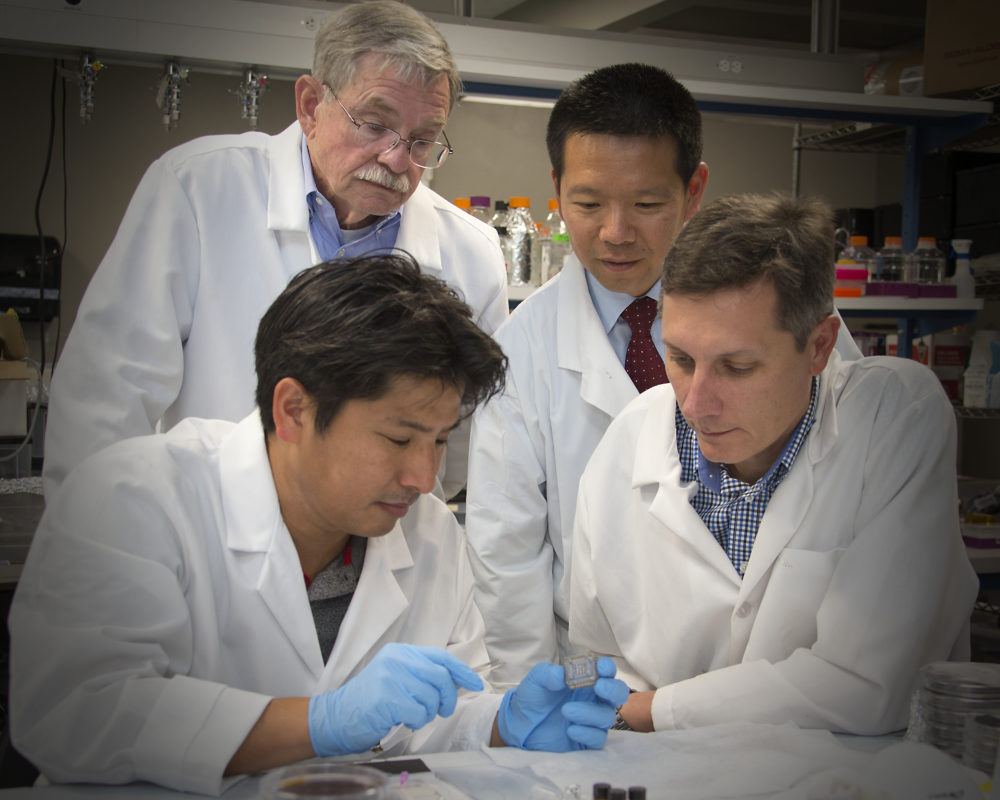Texas A&M Researchers Awarded Grant to Establish “Tissue Chip” Center
Testing drug safety and efficacy is challenging, expensive, and time consuming. Recent advancements have given way to what is known as “tissue chips.” These tiny bioengineered systems mimic the larger, complex organs and tissues of the human body. The chips may improve our ability to ensure that a drug is safe before clinical trials begin and could ultimately replace drug testing in humans and animals.

A team of Texas A&M University researchers, led by Dr. Ivan Rusyn, will be working to advance tissue chip research through a recently awarded $4.2 million grant by the National Institutes of Health’s (NIH) National Center for Advancing Translation Sciences (NCATS). This award will establish a state-of-the-art, tissue chip-testing infrastructure, known as Texas A&M Tissue Chip Validation (TEX-VAL) Center. The center will work with tissue chip developers to test and validate their devices. This work will help facilitate and further the use of tissue chips for drug and chemical testing in both the United States and Europe.
“TEX-VAL Center will conduct testing in the microphysiological systems developed by a number of NIH grantees,” said Dr. Ivan Rusyn, professor at the Texas A&M College of Veterinary Medicine (CVM) and principal investigator. “Our goal is to provide resources, personnel, and infrastructure for establishing functionality, reproducibility, robustness, and reliability of tissue chip models that represent a wide array of human organ and tissue systems.”
Currently, many researchers use conventional tissue cultures to test drug efficacy, but tissue chips offer a more physiologically relevant model that better imitates whole human tissues and organs, Rusyn said.
Although many are researching how to create tissue chips and testing their physiological function, TEX-VAL Center takes the research a step further. “The next important step is to demonstrate that tissue chips may be transferred to the laboratories and companies outside of the developers’ lab and shown to perform equally well and on a wide range of drugs and chemicals,” Rusyn said.
The project is a collaborative effort and includes faculty from across Texas A&M;’s campus and beyond. “The team of senior investigators and staff at TEX-VAL Center has been assembled to address all aspects of the tissue chip technology development and use,” Rusyn said. “Our team includes experts in toxicology, in vitro and in vivo testing, microscopy, genomics, pharmacokinetic modeling, bioengineering, analytical chemistry, and risk assessment.”
Other TEX-VAL collaborators are: Dr. Weihsueh Chiu, Dr. Robert Burghardt, Dr. Candice Brinkmeyer-Langford at the CVM; Dr. Clifford Stephan at the Texas A&M; Institute of Biosciences and Technology; Dr. Terry Wade with the Texas A&M; Geosciences and Environmental Research Group; Dr. Arum Han in the Texas A&M; College of Engineering, and Dr. Michael Mancini at the Baylor College of Medicine.
Learn more about the grant from NCATS’ press release.


